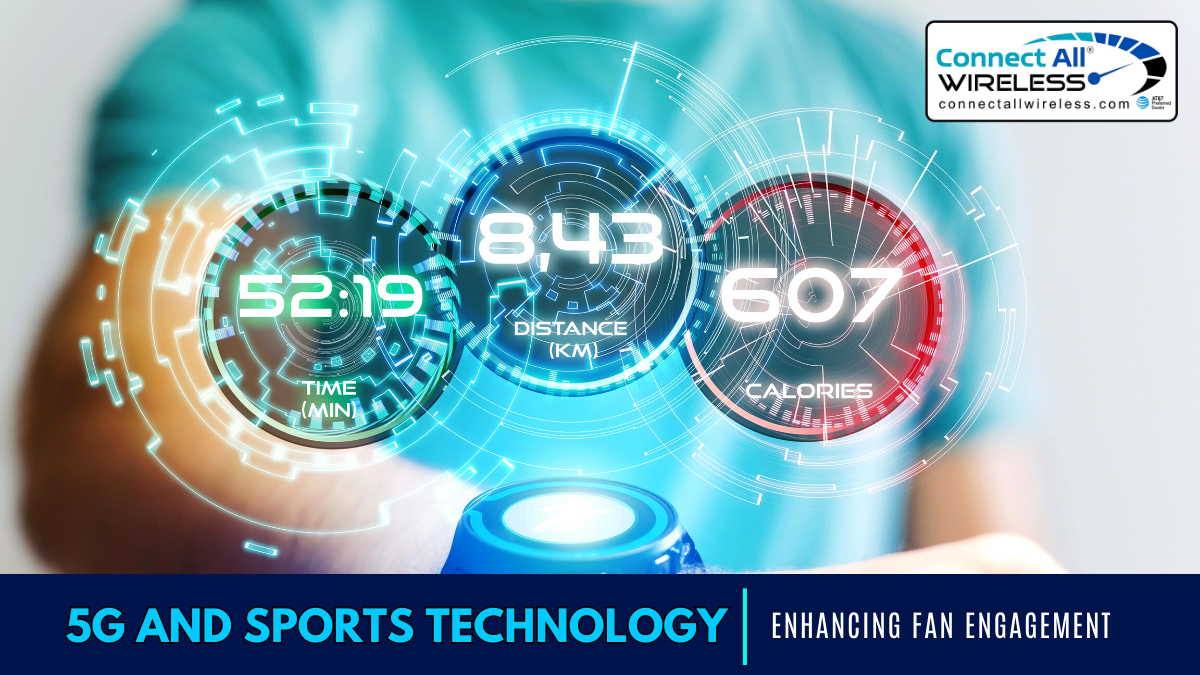In the ever-evolving landscape of sports, technology has become an integral part of the fan experience. The advent of 5G technology is set to revolutionize the way fans engage with their favorite sports. From faster connectivity to immersive experiences, 5G is poised to elevate fan engagement to unprecedented levels.
1. Faster Connectivity for Real-Time Updates
One of the most significant advantages of 5G in the realm of sports is its lightning-fast connectivity. With speeds up to 100 times faster than 4G, fans can now enjoy real-time updates, scores, and highlights without any lag. This ultra-low latency ensures that sports enthusiasts never miss a crucial moment, fostering a more immersive and dynamic viewing experience.
Imagine watching a live game on your mobile device with instant replays, player statistics, and interactive polls at your fingertips, all delivered seamlessly through the power of 5G. This enhanced connectivity brings fans closer to the action, eliminating the frustration of delayed updates and providing a more engaging sports experience.
2. Augmented Reality (AR) and Virtual Reality (VR) Experiences
5G opens the door to unprecedented AR and VR experiences, allowing fans to step into the shoes of their favorite athletes or explore virtual sports arenas from the comfort of their homes. With the high bandwidth and low latency of 5G, AR and VR applications can deliver a truly immersive experience, transforming the way fans consume sports content.
Imagine a fan attending a basketball game virtually, experiencing the energy of the crowd, and even getting a 360-degree view of the game from the best seats in the house. 5G's capability to handle massive amounts of data in real-time ensures that these AR and VR experiences are not only visually stunning but also responsive and interactive.
3. Enhanced Second-Screen Experiences
In the age of multitasking, second-screen experiences have become a staple for sports fans. 5G takes these experiences to the next level by providing a seamless and high-quality connection between the primary viewing device, such as a TV, and secondary devices like smartphones or tablets.
Fans can engage in live chats, polls, and social media discussions without any lag, creating a virtual community of enthusiasts sharing their passion in real-time. The immediacy of 5G enables sports organizations to offer synchronized content across multiple platforms, ensuring that fans stay connected and engaged throughout the game.
4. Personalized Content and Fan Interactivity
5G technology enables sports organizations to gather and process vast amounts of data in real-time, paving the way for highly personalized fan experiences. With advanced analytics, teams can tailor content based on individual preferences, providing fans with a customized stream of highlights, player interviews, and relevant statistics.
Moreover, 5G facilitates greater fan interactivity, allowing viewers to participate in polls, trivia, and interactive challenges during live broadcasts. The responsive nature of 5G ensures that these interactive elements enhance rather than disrupt the viewing experience, creating a more engaging and participatory environment for sports enthusiasts.
5. The Rise of Smart Stadiums
5G is transforming stadiums into smart, connected spaces that cater to the evolving needs of modern sports fans. From smart ticketing and contactless payment systems to augmented reality wayfinding, fans can expect a seamless and tech-driven experience when attending live events.
Smart stadiums equipped with 5G technology can offer enhanced in-venue connectivity, enabling fans to share their experiences on social media, access instant replays, and engage with interactive displays throughout the venue. This convergence of technology and live sports creates a more immersive and enjoyable experience for attendees, encouraging greater fan loyalty and satisfaction.
Conclusion
In the realm of sports, the synergy between 5G technology and fan engagement is not just a game-changer; it's a transformative journey that propels the sports experience to unprecedented heights. As we explore the boundless possibilities of 5G in Michigan, it's clear that the faster connectivity, immersive AR and VR experiences, personalized content, and smart stadium initiatives are reshaping the way fans interact with their favorite teams.
The introduction of 5G in Michigan sports arenas ensures that fans, whether at home or in the stands, are seamlessly connected to a world of real-time updates, interactive content, and personalized experiences. This technological evolution is more than just a spectator's delight; it's a community builder, bringing fans closer to the heart of the action.
As Michigan embraces 5G in the sports domain, the landscape of fan engagement is undergoing a revolutionary transformation. The state's sports enthusiasts can anticipate a future where every touchdown, slam dunk, or home run is experienced with unparalleled immediacy and interactivity. Whether navigating the augmented reality of a virtual stadium or participating in real-time polls, the 5G-powered sports experience is enhancing the sense of belonging for fans in Michigan.
Smart stadiums, equipped with 5G technology, are becoming hubs of connectivity, allowing fans to share their exhilarating moments instantly. This connectivity extends beyond the venue, creating a digital community where Michigan's sports enthusiasts can unite, share, and celebrate their passion for the game.
In essence, 5G in Michigan is not just enhancing fan engagement; it's fostering a new era of sports interaction. As we stand on the cusp of this technological revolution, the fusion of 5G and sports technology in Michigan serves as a testament to the unyielding commitment to delivering an unparalleled, immersive, and personalized sports experience for fans across the state and beyond. The game has changed, and Michigan's sports culture is at the forefront of this exhilarating evolution.

